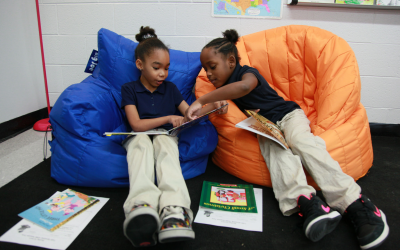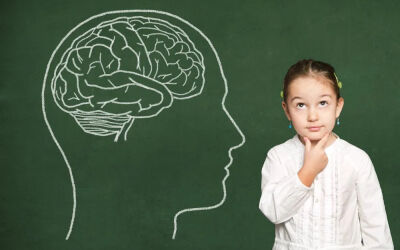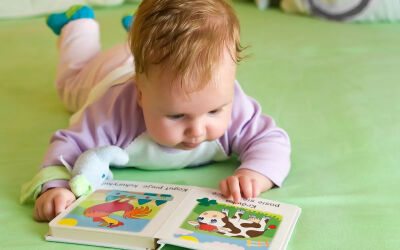
Reading is a fundamental part of a child’s education and development, and it is no secret that books have the power to shape young minds and foster a love of learning. But what is the science behind why reading is good for kids? How exactly does literature impact the development of a child’s brain and behavior? In this article, we will explore the latest research on the cognitive, emotional, and social benefits of books for kids.
The Cognitive Benefits of Reading for Kids
Studies show that reading has a profound impact on children’s cognitive development, from improving language skills to boosting memory and concentration.
Improving Language Skills
One of the most obvious benefits of reading for kids is the improvement of their language skills. Reading is a rich source of exposure to new vocabulary, syntax, and grammar, which helps children build a strong foundation for their language development. Regular reading also strengthens a child’s ability to comprehend written language and to express their thoughts and ideas in writing.
Boosting Memory and Concentration
Reading also improves a child’s memory and concentration skills. When reading, children must focus their attention on the story and remember details, characters, and plot twists. This mental workout helps develop working memory and strengthens the brain’s ability to concentrate and retain information. An article by MathGenie discusses the topic of improving kids’ memory through reading. Recommended!

The Emotional Benefits of Reading for Kids
Reading is not just good for the mind; it is also good for the heart. Books have the power to evoke emotions, teach empathy, and encourage self-reflection.
Evoking Emotions
Reading can be an emotional experience for kids, as they are transported to new and exciting worlds, or feel a deep connection to the characters and their struggles. This emotional engagement helps children understand and manage their own feelings and develop empathy for others.
Teaching Empathy
Reading is an excellent way to teach empathy, as children can put themselves in the shoes of characters from different backgrounds and experiences. This helps children develop a more nuanced understanding of the world and learn to respect and appreciate diversity. LionStory has a perfect book for kids to embrace their empathy skills, preview the book!
Encouraging Self-Reflection
Books can also encourage self-reflection, as children are exposed to different perspectives and ideas. This helps children develop critical thinking skills and form their own opinions on important issues.

The Social Benefits of Reading for Kids
Reading is not just a solitary activity; it can also foster a sense of community and social connection.
Fostering a Sense of Community
Reading can bring kids together, as they can discuss books and share their thoughts and opinions. This helps develop communication and collaboration skills and fosters a sense of community and belonging. Our book on friendship and social skills featuring your child.
Encouraging Communication and Collaboration
Reading also provides opportunities for kids to work together, as they can read books aloud and act out scenes or participate in book clubs and discussions. This helps develop communication and collaboration skills and encourages children to value the opinions of others.
Conclusion
The science behind why reading is good for kids is clear. Reading has numerous cognitive, emotional, and social benefits that can shape young minds and foster a lifelong love of learning. Whether you are a parent, teacher, or caregiver, you can help your child unlock the full potential of books by making reading a regular part of their life. So, let us encourage the kids to read more books and take advantage of the science behind why reading is good for kids! Find the perfect book for your kid in our new 2-minute test for parents!
FAQs on The Science Behind Why Reading is Good for Kids
1. What are the benefits of reading for kids?
Reading has a wide range of benefits for kids, including improving language skills, boosting memory and concentration, evoking emotions, teaching empathy, encouraging self-reflection, fostering a sense of community, and encouraging communication and collaboration.
2. How does reading impact a child’s brain development?
Reading stimulates the brain, strengthening the connections between neurons and promoting cognitive growth. By exposing children to new information and ideas, reading helps them develop their language skills, memory, and concentration. Additionally, by engaging their emotions and encouraging self-reflection, reading can have a profound impact on a child’s overall mental and emotional well-being.
3. How can I encourage my child to read more?
To encourage your child to read more, start by creating a reading-friendly environment in your home. Stock your shelves with a variety of books, and make reading a regular part of your daily routine. You can also encourage your child to participate in reading-related activities, such as book clubs, storytelling sessions, or library visits. Finally, be a role model for your child by setting aside time for your own reading and discussing books with your child.
